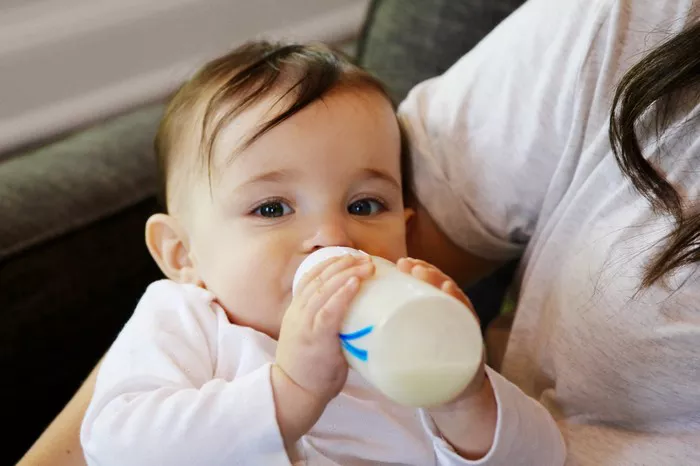As a parent, ensuring the safety and well-being of your baby is always a top priority. When it comes to feeding your little one, whether with breast milk or formula, questions about the freshness and safety of prepared bottles often arise. One common query is whether it’s safe to give a baby a bottle that was made several hours ago. In this article, we’ll delve into this question, providing comprehensive guidance backed by safety guidelines, storage recommendations, usage tips, health considerations, and expert advice.
Safety Guidelines:
Safety guidelines regarding the time frame for using a bottle after preparation are crucial for protecting your baby’s health. The recommended time frame varies depending on whether the bottle contains breast milk or formula.
Breast Milk: Breast milk is a living substance that contains antibodies, enzymes, and other beneficial components that help protect your baby from infections and promote optimal growth and development. According to the Centers for Disease Control and Prevention (CDC), freshly expressed breast milk can be safely stored at room temperature for up to four hours. However, if the ambient temperature exceeds 77°F (25°C), it’s advisable to use the breast milk within two hours.
Formula: Unlike breast milk, formula does not contain immune-boosting properties and has a shorter shelf life once prepared. Most pediatricians recommend using formula within two hours of preparation. If the bottle has been left at room temperature for longer than two hours, it’s safer to discard it to prevent the risk of bacterial growth and potential illness in your baby.
Storage Recommendations:
Proper storage of prepared bottles is essential for maintaining the freshness and safety of the milk or formula. Here are some storage recommendations to keep in mind:
Room Temperature: If you’re preparing bottles for immediate use or short-term consumption, it’s acceptable to store them at room temperature (ideally below 77°F or 25°C) for a limited duration. However, remember to discard any leftover milk or formula after the recommended time frame to prevent bacterial contamination.
Refrigeration: For longer-term storage, refrigeration is the safest option. Place prepared bottles in the refrigerator at temperatures below 40°F (4°C). When stored properly, breast milk can remain fresh for up to four days in the refrigerator, while formula should be used within 24 hours. Ensure that the bottles are tightly sealed to prevent any odors or flavors from permeating the milk or formula.
Usage Tips:
Knowing how to determine whether the milk or formula is still safe for your baby to consume is essential. Here are some usage tips to help you assess the freshness of the prepared bottle:
1. Check the Temperature: Before offering the bottle to your baby, check the temperature of the milk or formula by placing a few drops on the inside of your wrist. It should feel lukewarm, neither too hot nor too cold.
2. Inspect for Signs of Spoilage: Examine the milk or formula for any signs of spoilage, such as a sour smell, unusual color, or curdled appearance. If the milk or formula appears abnormal in any way, it’s best to discard it and prepare a fresh bottle.
3. Trust Your Instincts: As a parent, you know your baby best. If you have any doubts about the freshness or safety of the prepared bottle, it’s better to err on the side of caution and prepare a new one.
Health Considerations:
Giving your baby a bottle that was made several hours ago poses certain health risks that should be taken into consideration:
1. Bacterial Contamination: Milk, whether breast milk or formula, is an ideal breeding ground for bacteria when left at room temperature for an extended period. Consuming milk or formula that has been sitting out for too long increases the risk of bacterial contamination, which can lead to gastrointestinal issues and other health concerns in infants.
2. Nutrient Degradation: Over time, the nutrient content of breast milk or formula may degrade, diminishing its nutritional value for your baby. Freshly prepared milk or formula ensures that your baby receives the optimal balance of nutrients needed for healthy growth and development.
Expert Advice:
Pediatricians and infant nutrition experts provide valuable insights and recommendations regarding the safety of feeding babies prepared bottles. Here’s what they advise:
Dr. Sarah Johnson, Pediatrician: “It’s important for parents to follow safety guidelines when preparing and storing bottles for their babies. Breast milk can be safely stored at room temperature for up to four hours, whereas formula should be used within two hours to minimize the risk of bacterial contamination.”
Mary Smith, Registered Dietitian specializing in infant nutrition: “While it may be tempting to save time by preparing bottles in advance, it’s crucial to prioritize your baby’s health and safety. Always check the freshness of the milk or formula before feeding your baby, and discard any leftovers that have been sitting out for too long.”
In conclusion, the safety and well-being of your baby should always take precedence when it comes to feeding. While it may be convenient to prepare bottles in advance, it’s essential to adhere to safety guidelines, properly store prepared bottles, and assess the freshness of the milk or formula before offering it to your baby. By following these recommendations and seeking guidance from pediatricians or infant nutrition experts, you can ensure that your baby receives nourishment that is both safe and beneficial for their growth and development.


